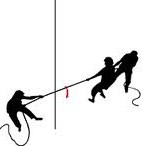 These are challenging times for government officials. In many communities the care of lost and homeless animals can be complicated by a host of competing priorities. When evaluating conflicting priorities it’s easy to look to the bottom line. When that happens, questions of compassion can be overlooked.
These are challenging times for government officials. In many communities the care of lost and homeless animals can be complicated by a host of competing priorities. When evaluating conflicting priorities it’s easy to look to the bottom line. When that happens, questions of compassion can be overlooked.
It’s easy to lose touch with the intrinsic value of animals when confronted with all the issues and problems involved with managing a city, town or county. It’s not difficult to understand how decision makers can feel human needs and wants are more important than animal needs and wants.
When this happens, it’s easy to reduce animal control to a simple equation of expense and expedience. We can fool ourselves into thinking we’re dealing with widgets rather than lives. It’s at this point that a community’s true character emerges.
Indian Prime Minister Mahatma Gandhi taught that the soul of a society is revealed by its treatment of animals. Animal control is a litmus test for determining a community’s capacity for empathy, compassion and kindness. Imagine the consequences if a community’s treatment of animals translated into how its next generation expressed love, compassion and mercy.
Matthew Scully, senior speech writer for President George W. Bush and author of the book “Dominion,” put it this way: “We are called upon to treat animals with kindness, not because they have rights or power or some claim to equality, but because they don’t; because they all stand unequal and powerless before us. Animals are so easily overlooked, their interests so easily brushed aside. Whenever we humans enter their world, from our farms to the local animal shelter to the African savanna, we enter as lords of the earth bearing strange powers of terror and mercy.”
Terror or mercy; every community makes a choice. Our community made a choice six years ago and has since accomplished what no other community has been able to achieve and sustain – an end to killing to control pet overpopulation. This was done despite higher priorities, greater needs and many human injustices. There will always be enough injustice and human suffering in the world to make the wrongs done to animals seem small and secondary, however, we err when we think of justice or kindness as finite qualities.
A community shortchanges itself when it reasons there is only enough concern for its elderly but not for its children, or just enough love for its children but not for its mentally ill, or only enough compassion for its human population but not for its animals.
We compound wrongs within our character when we excuse the wrongs done to animals by saying more important wrongs are done to humans and we must concentrate on those alone. A wrong is a wrong, and when we shrug off little wrongs, we do grave harm to ourselves and others.
Each year municipalities renew their commitment to mercy or terror when they renew their animal control contract. These contractual partnerships helped the quad-city region of Arizona become the safest and most humane community in the United States – for six consecutive years.
This was not always the case. Our community was once called “the most inhumane” in the nation by no less than the ASPCA. Together we transformed our community into a national model. We created a true humane society for ourselves, our families and our animals. By continuing to work together, we can and we will sustain this amazing success into the future.
Source: Competing priorities
